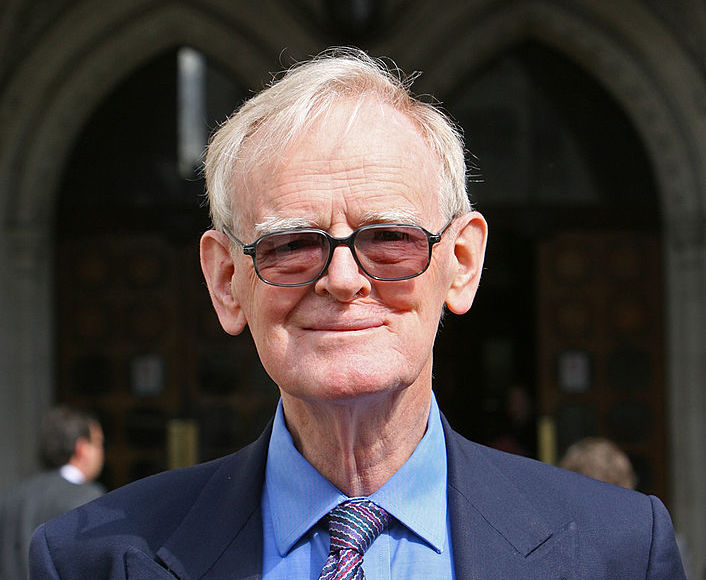If he had lived in a less meretricious age, Stuart Wheeler would be a household name.
An extraordinarily successfully entrepreneur, Stuart made his fortune founding the spread betting firm, IG Index. He then proceeded to spend a great deal of it restoring Chilham Castle in Kent and supporting the Conservative party during its nadir at the time of the Blair hegemony.
But for me it is the effort Stuart made to ensure that Britain regained her independence by leaving the European Union that really makes him stand out. At a time when the Eurosceptic movement was not only outside the mainstream, but seen by many as a hopeless cause supported only by those beyond the pale, he was a source of quiet inspiration. As a new MP in 2005, I found Stuart to be a constant encouragement.
Far from showing the kind of shrill certainty often associated with Euroscepticism, Stuart was both civil and subtle. At think tank meetings in and around Westminster, he would often sit in the front row, listening with rapt attention to what was being said.
More often than not, I remember he would then ask the speakers a genuine question. Unlike so many in politics, he did so because he was curious, not because he sought to use the opportunity to ask a question as a pretext for making a point.
Once it was clear that David Cameron was not going to honour the various less-than-cast-iron guarantees he had given over a referendum, I started to meet Stuart to discuss what might be done. He was generous not only with his advice and time – but as a host, too.
Stuart, like many of the best Conservatives, was not in my view much of a conservative at all. In an earlier time, he would have been called a liberal.
Besides helping get Britain out of the EU, one of his other great interests was human rights. By this, he meant not the absurd process of judicial review and lawyerly oversight that the human rights lobby has created, but authentic individual liberty. He funded efforts to end the use of torture around the world.
Politics over the past few decades has seen a succession of leaders and their courtiers come and go; the Blairites were replaced by the Brownites, the Cameroons by Team Boris. It is all too easy to regard such politics as a form of soap opera, with rival courtiers seeking to out manoeuvre one another and rich businessmen buying their way for a seat at the top table.
Stuart stood aside from all that. He never, in my opinion, spent a pound to curry favour or ingratiate himself with anyone. He supported the causes he did – from the TaxPayers’ Alliance to Vote Leave – because he believed in them. Our country is richer for it.
That Stuart never received a peerage, nor a knighthood, nor so much as a CBE for his years of quiet, selfless services perhaps tells us more about the system of political patronage, than it does about the enormous contribution Stuart made.
Thank you, Stuart. It was an honour and a privilege to know you as a friend.






Comments